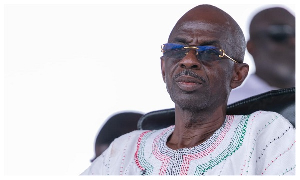First of all I want to commend all those who have carefully analysed the VAT fallout. I want to contribute to the on-going debate but to shift it to another terrain from the dominant ones which seem to be 1) the question of expanding our tax base and 2) Cabinet responsibility.
I would rather like to focus attention on the question of the role of Parliament in relation to the VAT Law and what it reveals about our fledgling democracy.
Let me just say for a start that I think the fact that the VAT Law was pushed through Parliament under a Certificate of Emergency shows that our legislature is not vibrant enough. For taxation is the most crucial area in which constituents lives are affected. In no country would a new tax law have passed without careful and long debates. That it did in ours confirms the suspicion that observers have had that our current Parliament is merely an encrustation of the Executive wing.
But for me the real issue lies at a more problematic level. From the constitution of the current Parliament, it seems to me that there is the lack of what I would term "adversarial dialogism" in our democratic life. Adversarial dialogism may be defined as the freedom/capacity/predilection to express disagreement and dissent in the context of a continuing dialogue.
The absence of adversarial dialogism in the current Parliament may of course be traced directly to the absence of a parliamentary opposition, so that there is little or no incentive to explore different perspectives to laws in debate. And yet the lack of adversarial dialogism needs to be seen partly in the context of the specific history of the institution of this particular Parliament.
This Parliament needs to be seen first and foremost as the SECRETION OF THE TOTALITARIAN PROCESSES OF THE UNDEMOCRATIC PNDC REGIME. It is easy to recall how each stage of the democratic process from about 1990 was marked by careful strategies by the then regime to prevent the expression of dissent, or, to stick to my terminology, the development of adversarial dialogism. Consider some of the key events: the national debate on democratization which had to take place under the shadow of oppressive decrees and under the surveillance of state security; the late stage at which political parties were allowed to register and begin campaigning against an incumbent who was intent on running for the Presidency; the confusions over the Electoral Register; the ceiling on party political expenditure while the incumbent government deployed the full apparatus of state bureaucracy both before and during the period of open party political campaigning. Of course, the opposition parties made a terrible blunder in refusing to take part in the Parliamentary elections, because in doing so, they actually contributed to the fruition of the best wishes of the regime to have an ineffectual opposition.
And so the present democratic order was produced. But, and here I am being deliberately controversial, it seems to me that the absence of an opposition in Parliament has not been counter-balanced by a preparedness on the part of the current NDC-dominated crop of parliamentarians to oppose the Executive as a principle upon which to ground the democratic experiment itself. There is no adversarial dialogism precisely because not only are NDC Parliamentarians defending their party affiliation, they are products of a party that has a totalitarian genealogy.
Thus, the current Parliament is a democratic institution which is in fact not democratic, simply because debates ultimately drift towards acquiescence to the wishes of the Executive. There may indeed be dialogism in Parliament, but it has been split asunder from adversariality, without which it can only be an empty back-patting ritual of agreement.
And yet we must not see the massive demonstrations against VAT as a "triumph" for democracy. Far from that. They rather reveal the brittle nature of the current arrangements and the fact that there is a perceived gap between the governed and the governors, between the electors and their elected representatives. For, ironically, the demonstrations express the outlines of adversariality without dialogism. In that sense the two poles of my term are split, with one, "dialogism," inhering in Parliament and the other, "adversariality," out in the realm of the public. And until all people interested in the success of the current democratic experiment see the necessity to work towards a conjoining of the two, the gap will remain and we shall be witnesses to an unending ritual of confusion.
Business News of Friday, 30 June 1995
Source: The Statesman
Emphasis is on furniture and electrical goods
Entertainment











